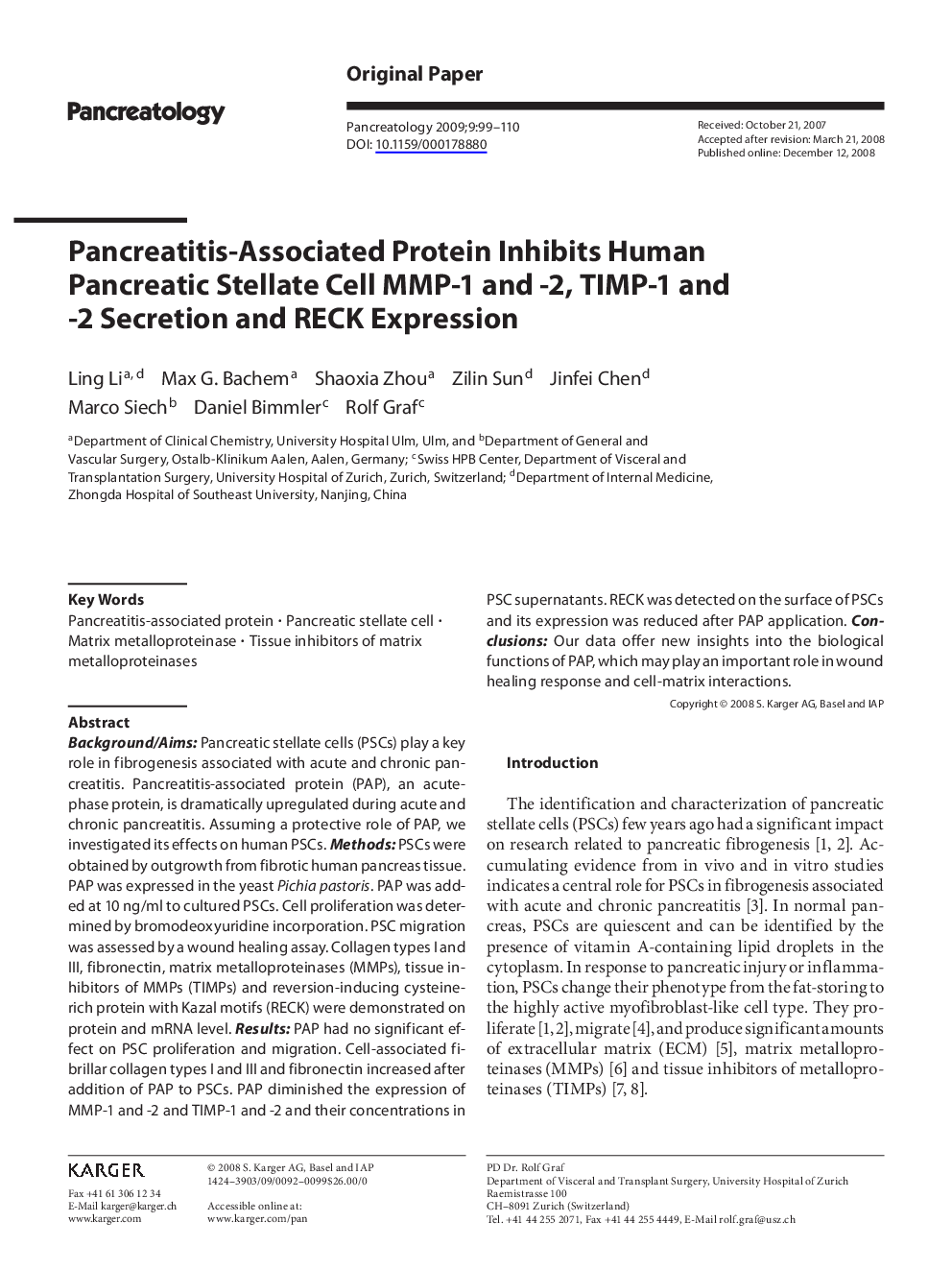| Article ID | Journal | Published Year | Pages | File Type |
|---|---|---|---|---|
| 3318346 | Pancreatology | 2009 | 12 Pages |
Abstract
Background/Aims: Pancreatic stellate cells (PSCs) play a key role in fibrogenesis associated with acute and chronic pancreatitis. Pancreatitis-associated protein (PAP), an acute-phase protein, is dramatically upregulated during acute and chronic pancreatitis. Assuming a protective role of PAP, we investigated its effects on human PSCs. Methods: PSCs were obtained by outgrowth from fibrotic human pancreastissue. PAP was expressed in the yeast Pichia pastoris. PAP was added at 10 ng/ml to cultured PSCs. Cell proliferation was determined by bromodeoxyuridine incorporation. PSC migration was assessed by a wound healing assay. Collagen types I and III, fibronectin, matrix metalloproteinases (MMPs), tissue inhibitors of MMPs (TIMPs) and reversion-inducing cysteinerich protein with Kazal motifs (RECK) were demonstrated on protein and mRNA level. Results: PAP had no significant effect on PSC proliferation and migration. Cell-associated fibrillar collagen types I and III and fibronectin increased after addition of PAP to PSCs. PAP diminished the expression of MMP-1 and -2 and TIMP-1 and -2 and their concentrations in PSC supernatants. RECK was detected on the surface of PSCs and its expression was reduced after PAP application. Conclusions: Our data offer new insights into the biological functions of PAP, which may play an important role in wound healing response and cell-matrix interactions.
Keywords
Related Topics
Health Sciences
Medicine and Dentistry
Gastroenterology
Authors
Ling Li, Max G. Bachem, Shaoxia Zhou, Zilin Sun, Jinfei Chen, Marco Siech, Daniel Bimmler, Rolf Graf,
